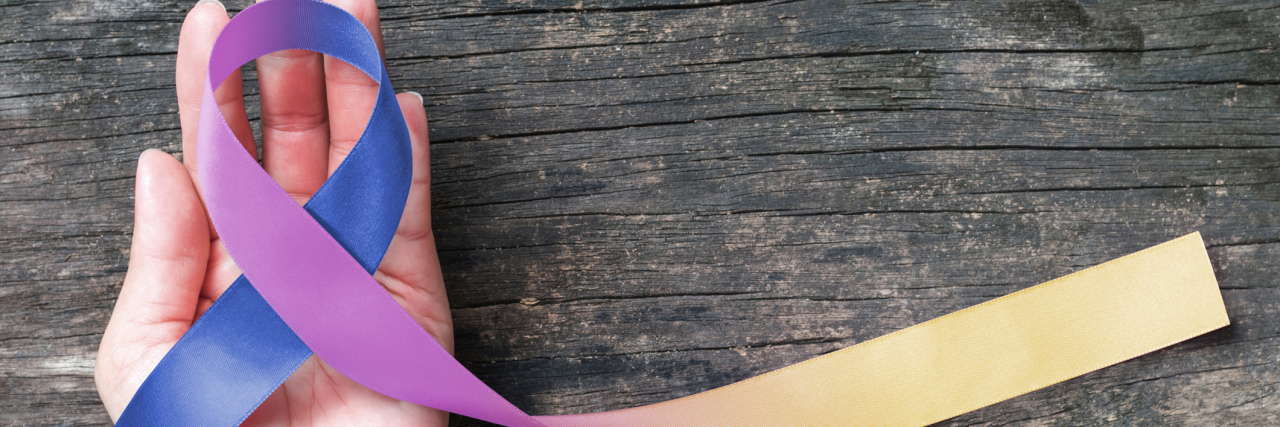Rosalyn Carter famously said, “There are four kinds of people in the world. Those who have been caregivers. Those who are currently caregivers. Those who will be caregivers, and those who will need caregivers.”
Having worked closely with older adults and people with disabilities and their families for the past 25 years, I know this to be true. What I didn’t know was this would be true for me, too. I never wanted to be a caregiver. I could counsel them, support them and teach them, but I didn’t want to be them. I used to think when it came time to be a caregiver, I would graciously pass on the offer. No thanks. Not for me. I didn’t mean to be a caregiver. When asked if I was one, I would respond, “No, I just help my sister-in-law.” When hospice asked if I was the primary caregiver, I said, “We all help.” When I saw articles about family caregivers and how they need to take care of themselves, I scrolled right past. I didn’t need to read them. I wasn’t a caregiver. I was just helping my sister-in-law. I’ve been a social worker and a family caregiver support specialist. I could easily spot a caregiver. I just couldn’t see it in myself.
My sister-in-law was diagnosed with stage 4 bladder cancer. After her second hospitalization, my husband and I invited her to stay with us for a couple of weeks while her husband got their home in order. That was two years, countless rounds of chemotherapy and immunotherapy, nephrostomies, a colostomy and a divorce ago.
This is what I’ve learned as an “accidental” caregiver:
It doesn’t matter what you call it. Whether it’s “caregiving” or “helping” or “being there,” it’s really an act of love. When it comes right down to it, I can’t imagine my sister-in-law anywhere other than my home. I will do anything to make sure she is safe, comfortable and cared for, even if means getting my hands dirty. That’s what gloves are for. We buy them in bulk.
It’s OK to feel what you feel. I have felt it all — resentful and angry; terrified and insecure; overwhelmed bordering on a break-down; heartbroken and sorrowful; thankful and elated. There are times I feel like running away and hiding. Let yourself feel what you feel without judgment. They’re just feelings. Act out of love.
Shit happens. Literally, in my case. When my sister-in-law came home with a colostomy, I was terrified. It was trial and error, and countless blowouts, until we found the system that worked for her. I’m not afraid anymore. It’s just doo-doo. This will sound crazy, but I enjoy the time we spend together when I change her colostomy bag. It’s just the two of us. We laugh, share our thoughts and are totally real with each other. It’s an intimacy not everyone gets to share. When the unexpected happens, it’s OK to be afraid and unsure of what to do. You realize how truly strong you are and you figure it out.
Don’t put your life on hold. A very wise counselor told me this. It’s easy to lose yourself when you are caregiving, and the thought of having your own life feels selfish. It isn’t. It’s imperative. We’re not talking about jet-setting across the world; in my case, it’s writing, having a date night with my husband, grabbing a cup of coffee with a friend, going to the movies and planning for the future, even though I don’t know what that future will look like. It centers me and helps me be a better caregiver.
Ask for and accept help. If you are the end all be all, you will burn out. If someone offers to help, let them. If they don’t, ask them. It doesn’t matter what it is. If someone can grab a few groceries, perfect. If they can do a load of laundry, fantastic. If they can just be around so you can get some fresh air, even better. Accept they may not do things the way you do, or even as well, but that’s OK.
Do whatever you need to do to take care of yourself. I had just finished treatment for breast cancer when my sister-in-law was diagnosed with bladder cancer. I know how important it is to make sure I stay healthy so I can help her. That means keeping all my medical appointments, taking medication, talking with a counselor, getting rest, writing and recharging. For others, it may include diet, exercise, yoga and meditation.
Everyone is different. Do what works for you.
Keep things in perspective. It’s hard to see the big picture when your day-to-day is a blur of providing personal care and the hundred other things that need to be done. You are helping your loved one live the best life they can, for as long as they can. That’s what we all want.
I may be an “accidental” caregiver, but my commitment and love for my sister-in-law is resolute.
Follow this journey on the author’s blog.
Getty image via Chinnapong.

